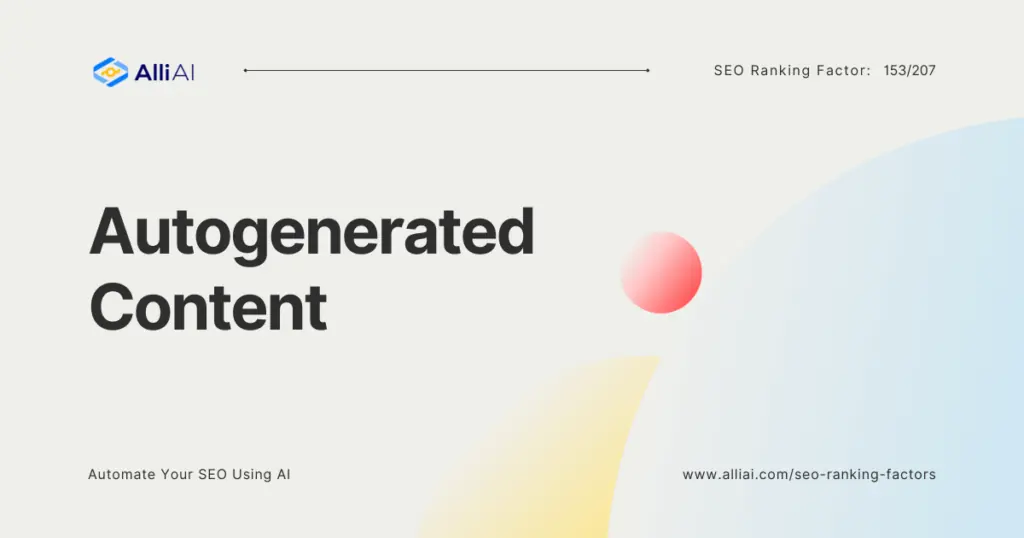What is Autogenerated Content?
Autogenerated content is content created by algorithms or artificial intelligence rather than human writers. This type of content typically relies on certain inputs like keywords, data sets, or specific templates to produce content that ranges from articles and reports to website pages and blog posts.
Think of autogenerated content like a vending machine for words. You input your requirements – say a topic or a set of keywords – and the machine, powered by its internal programming (algorithms), processes these inputs to ‘dispense’ a fully-formed piece of content, just like a vending machine would give you a snack or a drink. However, just like snacks, the quality can vary greatly depending on the inputs and the sophistication of the machine.
Why is Autogenerated Content important in SEO?
In the digital marketing landscape, content is king. Autogenerated content can play a crucial role in SEO strategies by allowing webmasters and marketers to quickly produce content at scale. This is particularly valuable for covering extensive keyword lists or populating new websites with initial content. When done correctly, autogenerated content can help fill content gaps, enabling websites to rank for additional search queries which boosts visibility and drives traffic.
How Autogenerated Content affects SEO?
1. Content Volume: Websites with more content have a greater chance of capturing a wide range of search queries. Autogenerated content can significantly increase a website’s content volume.
2. Freshness: Search engines like Google give preference to fresh content. Autogenerated content can help websites update frequently, signaling to search engines that the website is active and relevant.
3. Keyword Targeting: Autogenerated content can be tailored to include specific keywords, helping to optimize for targeted search queries.
However, it’s crucial to note the potential downsides. Poorly generated content can harm a website’s SEO by causing penalties for keyword stuffing or generating low-quality, irrelevant content.
Relevant Stats
– Google’s algorithms are increasingly sophisticated in identifying autogenerated content, particularly if it’s of low quality or spammy (Source: Google Webmaster Blog).
– Websites that frequently update with high-quality content have a 43% higher chance of ranking in Google’s top search results (Source: HubSpot).”
FAQ
How does Google view autogenerated content?
Google’s guidelines are clear that autogenerated content, when intended to manipulate rankings and not add any real value, can lead to a negative impact on a site’s rankings. The focus should always be on the quality and value of the content for the user.
Can autogenerated content be part of a white-hat SEO strategy?
Yes, if used responsibly. Autogenerated content that is fact-checked, relevant, and tailored to provide value to the reader can support SEO efforts. However, transparency and quality control are key — having human oversight on autogenerated content is recommended.
What are the best practices for using autogenerated content in SEO?
– Use autogenerated content to supplement, not replace, human-written content.
– Ensure the content is relevant, valuable, and aligned with user intent.
– Implement quality controls to edit or refine autogenerated content.
– Avoid over-reliance on keywords or creating spammy content.
Conclusion
Autogenerated content holds a significant place in the SEO arsenal, offering opportunities for scalability and efficiency in content creation. However, like any tool, its effectiveness depends on how it’s used. For SEO, the emphasis should always be on quality and value, ensuring content meets the needs and expectations of users while adhering to search engine guidelines. As search technology continues to evolve, so too will the capabilities and applications of autogenerated content. The challenge for SEO professionals is to harness this technology responsibly, blending innovation with integrity to drive sustainable, organic growth.






